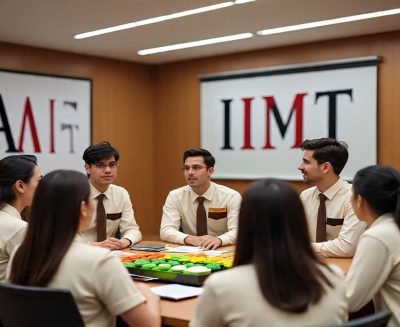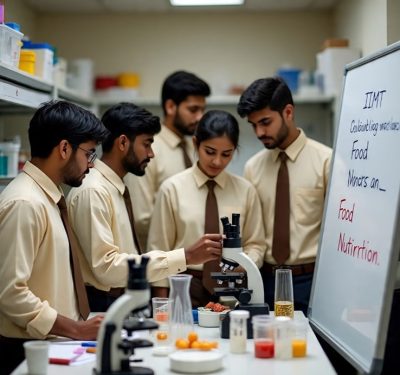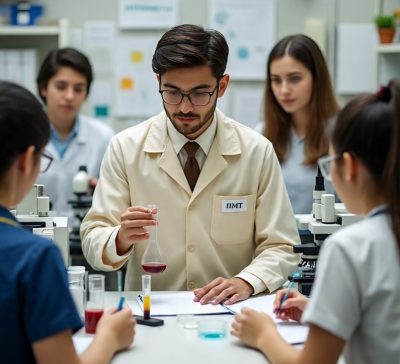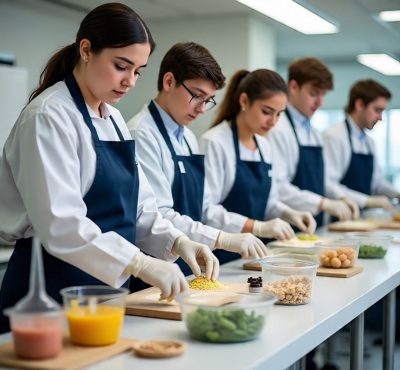IIMT UNIVERSITY ANNOUNCES STRATEGIC TRANSFORMS EDUCATION WITH NEW DEPARTMENT OF COMMUNITY SCIENCES
A Fresh Chapter in Nutrition Education
IIMT University, recognized among the top 10 private hotel management colleges in India, has taken an exciting step forward by transforming its Department of Home Science into the Department of Community Sciences, housed within the School of Hotel Management, Catering & Tourism. This isn’t just a name change—it’s a complete rethinking of how we prepare students for today’s dynamic food and nutrition landscape, complementing their already successful B.Sc. in hospitality and hotel administration programs.
Why This Change Matters
Let’s face it: the world of nutrition and food science has evolved dramatically. Today’s professionals need to think beyond individual dietary advice. They’re tackling community health challenges, working with diverse populations, and addressing everything from food security to sustainable eati ng practices. The old “Home Science” label simply didn’t capture this broader scope anymore.
This transformation positions IIMT University strategically among the top 10 private hotel management colleges in India by expanding its educational offerings beyond traditional B.Sc. in hospitality and hotel administration to include specialized nutrition and community science programs.
Dr. Sarah Johnson, Head of the newly renamed department, explains: “We realized our graduates were already working in communities, hospitals, and policy-making roles. The new name better reflects what our students actually do after graduation.”

What Students Can Study
The department now offers two focused programs that blend scientific rigor with real-world application:
Bachelor of Science in Community Science (Food, Nutrition and Dietetics)
This three-year program gives students a solid grounding in nutrition science while teaching them to work with communities. Students don’t just learn about vitamins and minerals—they learn how to design nutrition programs for schools, work with local farmers on sustainable food practices, and understand how cultural factors influence eating habits.
The curriculum includes hands-on lab work, community projects, and internships that put students right into the field. One recent graduate, Priya Sharma, landed a job with a Delhi-based NGO working on child nutrition programs. “The community focus in my studies made all the difference,” she says. “I wasn’t just taught what good nutrition looks like—I learned how to make it happen in real communities.”

Master of Science in Community Science (Food, Nutrition and Dietetics)
For those wanting to dive deeper, the two-year M.Sc. nutrition and dietetics program prepares students for leadership roles. This isn’t your typical academic program—it’s designed for people who want to shape nutrition policy, lead research projects, or start their own consulting practices.
The M.Sc. food and nutrition curriculum are particularly comprehensive, covering advanced topics that complement the university’s reputation among the top 10 private hotel management colleges in India. Students work on real research projects, collaborate with hospitals and government agencies, and gain the skills needed for advanced certifications. The program also prepares graduates for competitive exams like NET and opens doors to PhD programs, both in India and internationally.
Learning by Doing
What sets this program apart is its emphasis on practical experience. Students aren’t confined to lecture halls—they’re out in communities, working in hospital kitchens, collaborating with food manufacturers, and even developing mobile apps for nutrition education.
Recent projects have included developing nutrition guidelines for a local school district, creating culturally appropriate meal plans for elderly care facilities, and researching the impact of traditional Indian cooking methods on nutrient retention.

Career Paths That Make a Difference
Graduates from these programs are finding meaningful work across various sectors:
In Healthcare: Working as clinical nutritionists, developing hospital meal programs, or consulting with healthcare providers on patient nutrition needs.
In Government and NGOs: Managing public health nutrition programs, developing food policy recommendations, or working on community development initiatives.
In the Food Industry: Creating healthier food products, ensuring food safety standards, or developing nutrition education materials for consumers.
In Education and Research: Teaching the next generation of nutrition professionals, conducting research on nutrition-related health issues, or developing new approaches to community nutrition.
Modern Facilities and Technology
The department has invested heavily in creating learning environments that mirror what students will encounter in their careers. The labs are equipped with the latest analytical equipment, and students learn to use digital tools for nutrition assessment and program planning.
But it’s not just about high-tech equipment. Students also learn traditional food preparation methods, sustainable farming practices, and how to work with limited resources—skills that are crucial when working in diverse community settings.

Industry Connections That Count
One of the biggest advantages of studying at IIMT is the strong network of industry partnerships. Students regularly interact with working professionals through guest lectures, internships, and collaborative projects. This network extends beyond the traditional B.Sc. in hospitality and hotel administration connections to include nutrition and healthcare professionals.
What sets IIMT apart from other institutions among the top 10 private hotel management colleges in India is its unique positioning where students can benefit from both hospitality industry connections and specialized nutrition sector partnerships. The M.Sc. nutrition and dietetics program particularly benefits from these dual connections, creating unique opportunities for graduates.
Recent partnerships include work with local hospitals on menu planning, collaborations with food manufacturers on product development, and projects with government agencies on nutrition policy development. M.Sc. food and nutrition students often find internship opportunities that bridge both sectors, such as working with hotel chains on developing healthier menu options or consulting with corporate wellness programs.
Preparing for Tomorrow’s Challenges
The field of nutrition is constantly evolving. Climate change is affecting food security, urbanization is changing eating patterns, and new technologies are creating both opportunities and challenges for nutrition professionals.
The Department of Community Sciences is designed to prepare students for these emerging challenges. They learn about sustainable food systems, how to use technology for nutrition education, and how to work with diverse populations facing different nutrition challenges.
A Word from Current Students
“What I love about this program is that it’s not theoretical,” says Shweta Badola, a current M.Sc. food and nutrition student. “We’re working on real problems with real communities. Last semester, I helped develop a nutrition program for construction workers in Gurgaon. It felt like I was making a real difference.”
Another student, Bonung Siram, who chose IIMT after researching the top 10 private hotel management colleges in India, adds: “The faculty don’t just teach from textbooks—they share their own experiences working in the field. You learn about the challenges you’ll actually face, not just the ideal situations. The M.Sc. nutrition and dietetics program here offers something unique that I couldn’t find elsewhere.”

Recognition and Quality
IIMT University’s commitment to quality education is reflected in its NAAC A Grade accreditation and UGC approval. This ensures that graduates receive education that meets national standards while preparing them for international opportunities.
The department regularly updates its curriculum based on industry feedback and emerging trends, ensuring that graduates are always prepared for the current job market.
Looking Ahead
This transformation represents more than just a departmental name change—it’s a vision for the future of nutrition education in India. As communities face complex health challenges, from malnutrition to obesity, from food security to sustainable eating, we need professionals who can think beyond individual dietary advice.
The Department of Community Sciences is preparing graduates to be these professionals—people who can work with communities, develop policies, conduct research, and create innovative solutions to nutrition challenges.
For students passionate about making a real difference in community health, this program offers an unmatched opportunity to combine scientific knowledge with practical skills, preparing them to lead positive change in the field of nutrition and community wellness.
The journey from classroom learning to community impact starts here, and the possibilities are endless.
Written By:
ARUSHI (Assistant Professor)
Department of Community Science-Home Science,
SOHMCT, IIMTU

